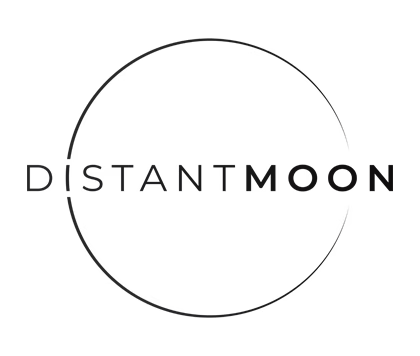So this post is a day late (ok, two weeks late) and who knows how many dollars short. Ha! Long story short: these bi-weekly posts are supposed to go out every other Monday. And if you’re a relatively aware adult, you’ve probably noticed I didn’t send an email out two Mondays ago. As it so happens, a heavy mix of post-production deadlines and a crazy few weeks of production (check out the BTS at the bottom) means that Jack (aka Ian) is a dull boy who doesn’t finish newsletters on time.
But maybe that’s for the best.
Because what I was going to write about a couple weeks ago was a deep dive into how organizations can develop film content that pulls in audiences and turns them into advocates. It was going to be good, but probably a bit dry. And then something happened Monday that made me think, “Screw it. This NEW insight would make for a way better newsletter topic…”
What was that insight, you ask?
“The moment of personal crisis is usually necessary to arrive at the end goal.”
In film terms: you (the character) have to go through the dark night of the soul to reach the culmination of your story. The dark night of the soul is that moment when all feels lost, we don’t know where to turn, and we just have to commit to the suck and push through.
And I’d argue that this isn’t just a storytelling device. It turns out to be necessary in the pursuit of anything worthwhile.
I was reminded of this Monday when my good friend Jeremiah Regan walked on set around 5pm during our final set-dressing and pre-light day for a big new online course and film series we’re producing on Homer’s The Odyssey.
Let’s just say most of the crew (myself included) was at hour 14 or 15, running on about 3 hours of sleep, with hours of work still ahead. And the set looked…fine.
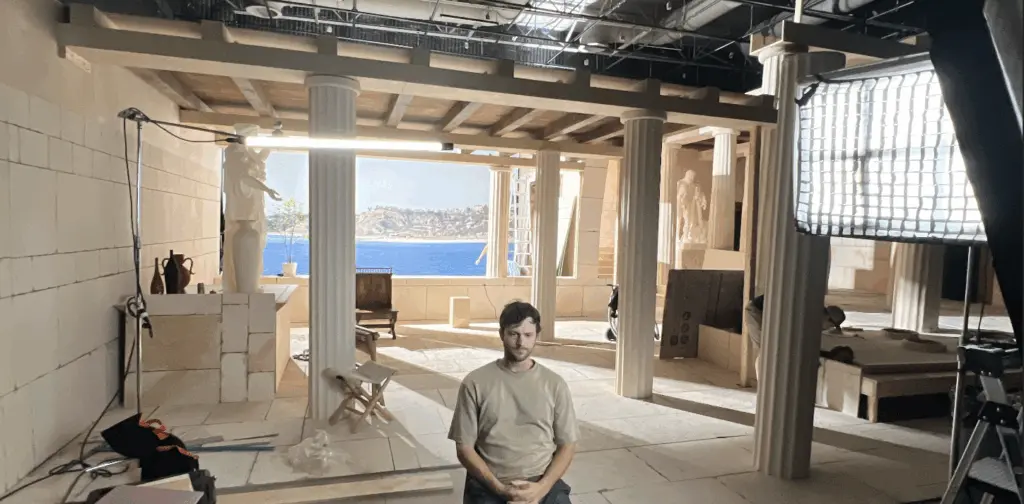
But “fine” isn’t the goal.
Immersive. Excellent. World-class. That’s what we’re aiming for. And the set was just looking…“fine.”
Let’s just say I wasn’t being my most upbeat self. Jeremiah paused. Looked at the set. Looked at me. Then said, “So you hit the usual low point, huh?”
I chuckled. Looked at him. “Yeah.” Then I got back to work. And then I realized that, as I returned to work, I was just a bit less frustrated.
The reason I felt encouraged by Jeremiah’s sparse statement, was that there was a lot packed into his words. You see, Jeremiah and I have produced about a dozen projects together over the past year and a half. And with the client Jeremiah represents, I’ve produced about 30 projects—more than with any other partner.
And something we’ve learned from that sample size? (And don’t roll your eyes at the cliché):
Things usually feel most bleak and frustrating right before all the creative components click.
But I don’t think the cliche about “darkest before dawn” is true because of some milquetoast idea like “things always work out” or “life moves on.” I also don’t think it’s because things actually get worse before they get better. I think things feel most bleak right before everything clicks, because it’s at that moment that you’re standing at the intersection of two competing factors: Exhaustion (you’ve been pouring everything into the project), and Incompletion (it’s not done yet).
If it were done and you were exhausted—no panic.
If it were incomplete and you were still fresh—no panic.
But when it’s incomplete and you’re exhausted? That’s when frustration creeps in.
And if you’re trying to create something beautiful and excellent (which I assume you are. Otherwise, why else are you reading this newsletter?), then you’ll probably find those two strange bedfellows showing up right before the finish line.
I should note that around this point in his review of my newsletter, Jeremiah turned to me and said, “But perhaps the moment of crisis isn’t necessary? Perhaps merely to be expected?” Fair critique. And perhaps that’s true. But as I contemplate whether the panic or crisis is necessary to produce great work, I think about a quote from one of the world’s most respected cinematographers, Roger Deakins.
“If, whoever you are, you care about what you’re doing – you’re going to be nervous […] He was nervous, I was nervous, everybody was nervous. And you get over it by being part of a team working on something to the same end. That’s what’s wonderful about filmmaking.”
That’s right, the most famous Director of Photography in the world still gets nervous on set – still feels sick to his stomach when at the beginning of new projects. And in a strange way, I think that’s ultimately pointing at the same issue I’m trying to get at, but from a different angle. You feel deep emotions related to a project IF and only if you care about that project. Do you care about your work? You’ll get nervous before you begin. Do you care about the final outcome and its not yet living up to its potential? You’ll get nervous or panic or have a moment of existential crisis (oh, just me?).
So perhaps what I’m saying is “Jeremiah. I see your point, but also, perhaps we slightly disagree. And perhaps I actually do think that that moment of crisis is necessary for making the art, the design, the project, the story, the [whatever you’re working on] great. Or at least it’s an indication that you care enough to put in the work to make it great.
And remembering this was encouraging for me. Because now, incompletion feels less like failure and more like a feature of the process. That moment of panic becomes a quiet recognition:
“Oh, this part. I know where I am.”
And that gives you the clarity (and the confidence) to push through and finish well.
Because finishing well is really what we’re all after, isn’t it?
Oh, and by the way, I think we finished well with Jeremiah’s encouragement. Here are some final frames from the project. It’s a series about a famous work of Greek Literature.
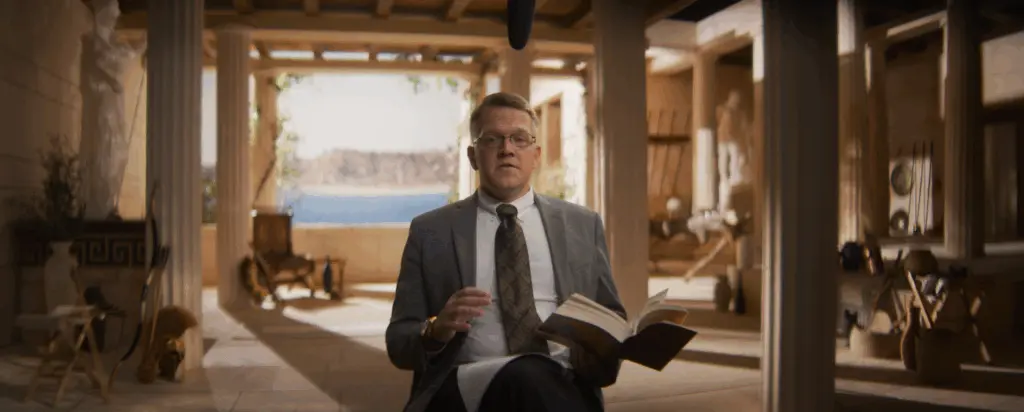
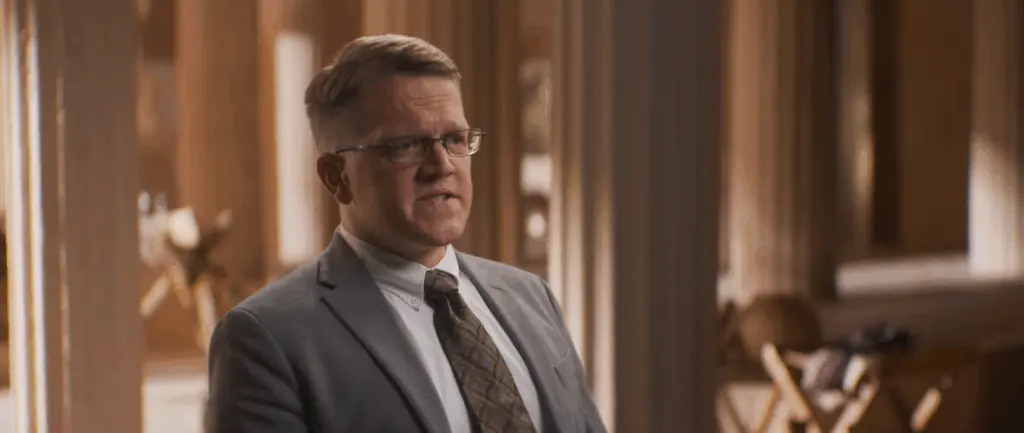
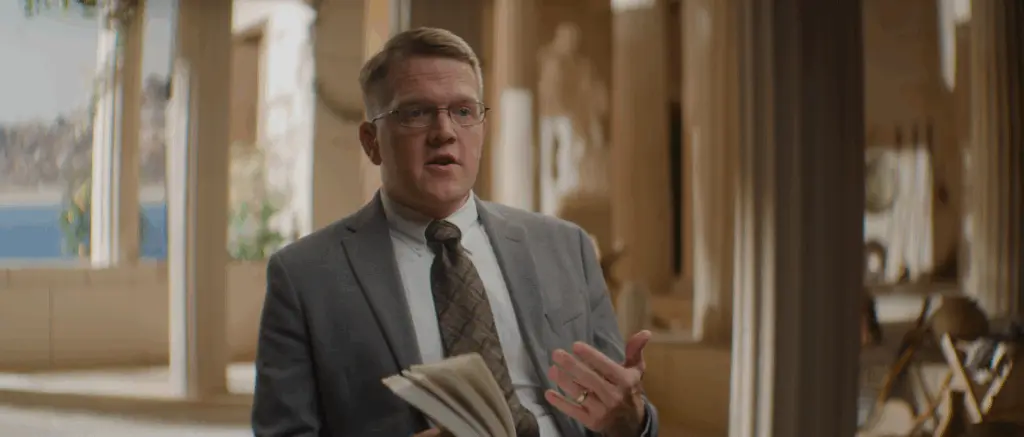
Here’s to finishing well and to human flourishing.,
Ian Reid
Film Director / Founder of Distant Moon
P.S. – Since I showed a BTS image of the set prior to completion, here’s a shot after completion! Let me know if you have any questions about our process! We love to share with others interested in learning!
| Want to watch or listen instead of reading? Don’t have time to read these newsletters? Check out last week’s newsletter “The Question Behind Every Success” in its podcast form/as a youtube video while you drive or cook or whatever you’re doing! Youtube Link: WATCH HERE |

TL;DR – The Low Point Means You’re Close to Greatness
One-sentence summary:
Creative breakthroughs often come right after the lowest, most exhausting moments—because those lows signal you care enough to push for excellence.
3 key takeaways:
- The “dark night of the soul” isn’t just a film trope—it’s a real part of producing meaningful work.
- The toughest point comes when exhaustion meets incompletion, not because things are failing, but because they’re close to clicking.
- Feeling nervous, frustrated, or panicked can be a sign you care deeply and are invested in making something great.
Main thought:
Incompletion isn’t failure—it’s a feature of the creative process.
Don’t have time to read these newsletters? Check out last week’s newsletter “The Question Behind Every Success” in its podcast form/as a youtube video while you drive or cook or whatever you’re doing!
Youtube Link: WATCH HERE
